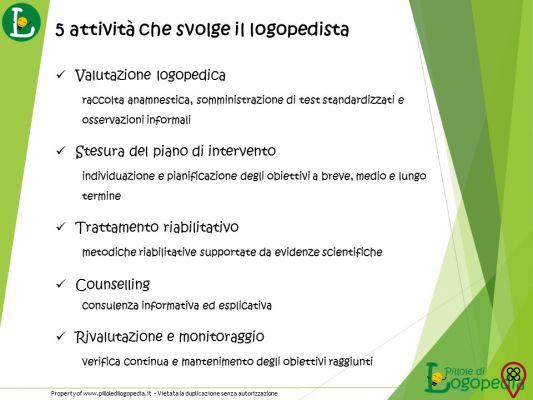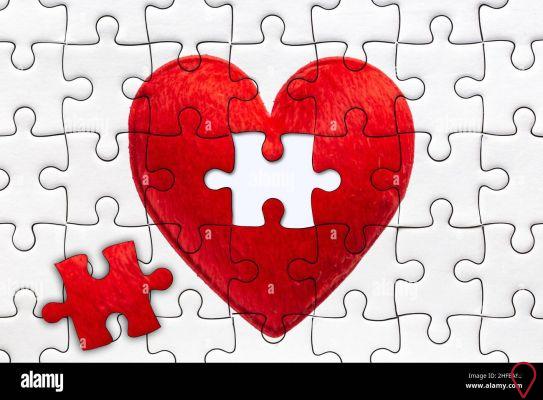Everyone knows a person who is always at a loss for life. The one who, when he goes to the movies, leaves complaining, the theme was poorly explored, the actors are inexpressive, the sets are poorly made and the costumes don't match the time. They abandon a book after a few pages, because it couldn't bear the grammatical errors and the superficiality of the plot. For these people nothing is good and people don't like them. They take everything personally. They live with a frown, with a frown, a look of disapproval and always ready to fight.
Moments of bad mood are common. When the causes are resolved, it is possible to return to activities and, mainly, to live with people in a healthy way. However, in some people the bad mood lasts for months and even years. This frequent irritation masks frustration at the inability to control situations or people.
Constant bad temper and irritation has a name, dysthymia, a Greek word meaning bad mood. For several centuries it served to define the constantly irritable person. However, today the term dysthymia is used to classify a type of depression of moderate intensity that can manifest in childhood and old age, however, most cases start in adolescence. According to the World Health Organization (WHO), 3% of the world population – approximately 180 million people suffer from this disorder. In Spain, it is estimated that dysthymia affects between 5 and 11 million, according to the Spanish Association of Family, Friends and People with Affective Disorders (ABRATA). The highest incidence is in women, but not so much classic depression. In dysthymia, two women are affected for every man.
Symptoms

People with dysthymia have low self-esteem, always make self-disqualifying comments. He has a high sense of self-criticism with those around him. People with this disorder are restless, tense and express their emotions with screams. By seeing only the negative side of things, they make difficult times even more complicated. The intensity of symptoms varies from person to person. A sudden drop in testosterone levels causes mood swings in men. Weight gain or loss of more than 5% in a month, insomnia or too much sleep are also symptoms seen in the disorder.
Causes
The causes of dysthymia generally come from three different sources: life events themselves, which can affect our mood and develop disorders; genetics and heredity, if there are cases of dysthymia or depression in the family; and intentional thoughts and activities, such as being optimistic/pessimistic, cultivating good relationships, having goals and objectives, keeping the body moving and spirituality.
According to the doctor Dráuzio Varella, dysthymia also affects sleep and is affected by it. People with dysthymia, he said, have the same sleep pattern as people with depression. This means that their REM (rapid eye movement) phase of sleep, in which their eyes move quickly and dreams are more vivid, takes place before 70 minutes of sleep.
It is common, among dysthymic individuals, to use both licit and illicit drugs, with the aim of reducing irritation, discomfort and anguish. Alcohol is the most common of them, because initially it provides tranquility and improves mood, but, after the drink's effect, irritability returns with even more force.
So the harm of drug use for dysthymic people is twofold, because it can cause chemical dependence and get in the way of the fight against dysthymia, especially if some treatment is already being given.
Diagnosis
According to Varella, the differentiation between dysthymia and depression is more academic than practical, since the treatment is done with antidepressants. However, the main difference between the two disorders is that the depressed person suddenly loses the will to live. Dysthymic patients, on the other hand, had severe depression throughout their lives. Patients with depression, when they return to the consultation after the medication, present animation and disposition. For dysthymic people it is difficult to establish a standard of normality, it seems that they were born grumpy.

Please honestly answer the following questions thinking about your behavior over the past two years. The answers will give an overview of the situation:
- Do you feel sad more than four times a week or do you feel neither happy nor sad most days?
- Is he moody even in situations where everyone seems happy?
- Is it aggressive?
- Do you feel unable to feel pleasure or relax?
- Having trouble concentrating?
- Do you have low esteem?
- Do you feel inferior to others?
- Do you have trouble feeling happy and satisfied?
- Do you have difficulty making decisions?
- Feeling tired or lacking energy?
- Is it rigid or inflexible?
- Take it all personally?
Don't confuse dysthymia with stress
Some symptoms of dysthymia are very similar to symptoms of stress, such as irritability, moodiness, and lack of energy, but there are some differences between these problems, differences that can be critical to finding the right treatment.
Stress is a problem that we will all go through, to a greater or lesser degree, because throughout life we are exposed to stressful situations. When a stressful phase extends, whether for days, weeks or months, a more serious picture can set in, but most often these moments come and go.
Dysthymia, however, is a problem in which bad mood, discouragement, sadness, among other symptoms, have been present for at least two years in the patient's life, unlike the cyclical phases of stress.
In addition, stress often leaves our lives when the situation that was causing the stress comes to an end, unlike dysthymia, which needs psychological support and psychiatric treatment to be cured.
So, if you notice that your symptoms and that this malaise (whether physical or psychological) is already lasting two years or a similar time, make an appointment with a psychiatrist and talk about this situation.
Suicide
Many dysthymic people commit suicide. There are those who can't stand the inability to relax and not be able to maintain relationships. Of these patients, 15 to 20% attempt suicide. In childhood or adolescence, 90% of children and adolescents who have attempted or committed suicide have psychiatric illnesses, especially depression, schizophrenia and dysthymia.
Treatment
Treatment of dysthymia involves psychotherapy and medication. Therapy sessions help the patient to reduce self-destructive feelings such as negativity and hopelessness. Work is also carried out to improve family and friends coexistence, in addition to professional relationships. Dysthymic patients usually need to take antidepressants for two years. The most used drugs are:

- Selective Serotonin Reuptake Inhibitors (SSRIs): Used in cases of mild depression, anxiety or panic attacks, and bipolar disorder. Sedation, confusion and nausea are some of the side effects;
- Selective Serotonin and Noradrenaline Reuptake Inhibitors (SNRIs or SNRIs): Used in the treatment of depression, anxiety disorders, and some types of personality disorder. It is one of the most prescribed antidepressants. It has almost no side effects;
- Tricyclic antidepressants: They have this name because they have three rings of atoms. Used in the treatment of chronic or profound depression. Side effects are: dry mouth, restlessness, sedation and urinary retention.
Complementary treatment
Acupuncture (from the Latin acus - needle and puncture - placement) is a technique of Chinese medicine, and according to a resolution of the World Health Organization (WHO), a method of complementary treatment. For patients with dystemia, they can complement psychotherapeutic and drug treatment. Its foundation is to stimulate the flow of "chi" energy, thus bringing emotional balance. The stimulation made by the needles causes the brain to release serotonin. As acupuncture helps with weight loss, it is also beneficial for dysthymic people, who may overeat.
Stimulated points are located on the chest, scalp and wrist. The effects of the needles are as follows:
- Vital energy canaliza - chi;
- Emotional balance;
- Relaxes the cervical muscles;
- Stimulates concentration;
- Eliminates stagnant energy.
Shiatsu (from the Japanese Shi = finger and atsu = pressure, that is, pressure with the finger), is also a complementary treatment. It is the pressure exerted by the fingers and palms on certain points that form energy channels, also called meridians, which relate to the internal organs. Within the Meridian Channels circulates the vital energy Ki. Shiatsu balances the nervous system, reduces muscle tension, regulates sleep disorders, among other benefits.
Dysthymia and nutrition
Food is an ally in treatment. Here are the vitamins and minerals that cannot be missed at the table:

- Selenium: This mineral helps improve mood. It is found in almonds, fish, walnuts and sunflower seeds;
- Folic acid: Ensures the proper functioning of the nervous system. White beans, soybeans, asparagus, apples and oranges are the biggest sources;
- Vitamin B6: Promotes the production of serotonin. Invest in wholegrain cereals, brewer's yeast, sesame, garlic, banana and tuna;
- Omega 3: Reduces cholesterol, strengthens the immune system and helps fight depression. Salmon, tuna, sardines, cod, fish oils and flaxseed have a high concentration of Omega 3;
- Magnesium: Increases energy. Found in oats, brown rice, soybeans, tomatoes, spinach and cashews;
- Calcium: Reduces irritability and stabilizes the heartbeat. It is found in milk and dark green vegetables such as spinach, kale and watercress.
Other foods that should be part of this diet:
- Lettuce: Decreases irritation. The lactucin present in the stalk acts as a sedative;
- Grape: Source of B vitamins, responsible for the proper functioning of the nervous system. Vitamin C and flavonoids are antioxidants, which delay skin aging, fight cholesterol and give energy;
- Honey: Stimulates the production of serotonin.
Habit changes
In addition to food, there are other measures that help improve the daily lives of those who have dysthymia:
- Do not smoke or drink: Cigarette causes cardiovascular and lung diseases, generating anxiety and depression. Alcohol, at first, brings relaxation and disinhibition, however, soon after the effect wears off, anxiety and irritability return;
- Drink two liters of water: Cellular dehydration causes brain stress;
- Sleep eight hours a day: Go to sleep no later than 22 pm. Invigorating sleep occurs between 23pm and 3am;
- Exciting activities: Before bed, don't watch TV, don't do gymnastics, don't access the internet. Prefer relaxation exercises and calm music;
- Last meal at 18 pm: Choose soups, salads and light sandwiches;
- Teas: Passion fruit, chamomile and lemon balm relax and eliminate anxiety. St. John's wort tea is effective in restoring the nervous system and acts as a natural antidepressant. To do this, use a teaspoon of St. John's wort and 200 ml of water. Place the herb in a cup and add boiling water. Cover and wait 10 minutes, strain and consume. Black tea and mate have caffeine, so they have the opposite effect and should be avoided;
- Cold bath: Or warm bath in the morning helps to wake up thanks to the thermal shock. The hot bath at night causes vasodilation, causing relaxation;
- Physical activity: Go for a walk before 10 am or after 4 pm. It is a great stimulant for the pineal gland. The sun's rays promote the production of melatonin, a hormone that helps make sleep more peaceful, increases physical resistance and improves mood;
- Meditation: The list of benefits is long. Just to name a few, it lowers blood pressure, increases serotonin production and enhances creativity. Dedicate half an hour a day and you will see the difference;
- Contact with nature: Visit gardens, beaches, mountains and rivers. Contact with nature helps to invigorate.
You may also like
- Discover these 4 exercises to fight stress and promote good mood
- Get a dog and reduce your stress!
- Learn why disorganization can cause us so much stress
We present here a disorder that is still little known. Dysthermia paralyzes the person's life. Carriers are seen as boring and moody, however, they feel distressed for not being able to relax and enjoy life. They suffer from being seen as unpleasant people. They are frustrated by not being invited by their co-workers to the famous happy hour. Aggression is common in these patients, and it is their way of expressing their feelings and asking for help. For the friends and family of a dysthymic person, here are the following tips:
- Be close: Stay close. Sit next to the person, hold their hands and tell them how important they are to you;
- Don't judge: Never say "you're not the only one who has problems". In addition to being logical, it shows that the internal conflicts of the dysthymic are seen as freshness, something of those who have nothing to do;
- Avoid giving advice: Don't tell her what she has to do, because the therapist already gives guidelines in that sense.
We hope to have contributed to the discussion of this disorder, which is still little discussed, but so common. Knowing a pathology is always the first and best way to establish the forms of treatment. If you have identified with everything reported in this article, do not hesitate to seek the help of a psychologist or psychiatrist. Now, if you have a family member or friend in these conditions, don't be afraid to talk to them, in order to show them that their behaviors prevent full existence. Medicine is at our disposal and we must always resort to it to make our lives better.

























